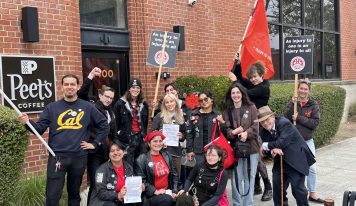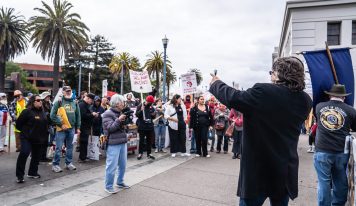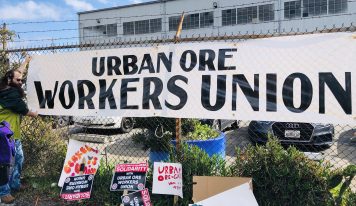On September 11th, California governor Gavin Newson signed a bill that would allow former nonviolent inmates who have served on prison fire crews to have a better chance at becoming firefighters. AB-2147, sponsored by Assemblywoman Eloise Gomez Reyes, D-San Bernardino, would allow formerly incarcerated people to have their criminal records more quickly cleared. Firefighters must acquire several state licenses, including an emergency medical technician certificate, which are not currently available to those with felony criminal convictions on their records. With clear records, former prisoners may become eligible for civilian firefighter jobs.
California has used inmate firefighters since the 1940s for manual fire labor like clearing brush and building fire breaks. To qualify, prisoners must have minimum custody status, a clean record, and must be close to parole. Those who qualify and opt in to the program receive Cal Fire training. Inmates are paid between $2.90 and $5.12 a day, plus $1 hourly while on a fire, higher than the average pay of 20 cents an hour at state prisons. Prisoners can use this pay to buy items like soap (90 cents), ballpoint pens ($1.10 for a 2 pack) and tampons ($5.55 for 2).
This program takes $100 million a year away from both inmates who make below minimum wage and also, California’s civilian firefighters who would otherwise have access to these jobs opportunities. Part time firefighters earn $15.00-$15.46 an hour and lower level full time, $13.50 – $17.06 an hour, plus benefits. In recent years, approximately a third of California’s wildfire firefighters have come from prison fire camps, said the state’s fire agency, Cal Fire. The demographics of California’s inmate firefighters reflect those of the US prison population at large, with an overrepresentation of people of color from lower socioeconomic backgrounds.
Romarilyn Ralston, Program Director of Project Rebound, a California State University program supporting formerly incarcerated students, commented on the program prior to this new law saying, “…it’s OK to exploit the labor of incarcerated firefighters… at slave wages, but once you’re released and pay your debt to society… and you have this really high-level skill… you can’t do that.” Ralston was also quoted in the Guardian, saying, “It doesn’t make sense that these people have risked their lives to save Californians, they’ve already been doing the job, and yet they’re barred from these jobs after release…When there’s a fire burning, when your life is in danger and you can’t breathe – you’re not going to do a criminal background check before you let someone save you.”
The new law comes as wildfires rage across California. As of early September, California wildfires have already burned more than 2.2 million acres and damaged nearly 4,000 buildings, surpassing the damage of the 2018 wildfires. In the face of these historic fires, the prison population used to fight wildfires has been cut this year due to coronavirus. Many nonviolent prisoners have been released early to slow the spread of the virus in close quarters. In other prisons, COVID outbreaks have required quarantines that prevent inmates from working on fire crews.
“Every fire season it’s the same,” said Ralston, before the new law. “The pay is so little, the work is so dangerous. Now we add Covid-19 to the story, and it gets even worse.”
AB-2147 holds real promise to remove barriers so that former inmate firefighters can continue to work as firefighters upon their release if they so choose. However, it does not address the policies surrounding California’s inmate firefighter labor in general. As per the 13th Amendment to the United States Constitution that allows slavery as a punishment for a convicted crime, California can still legally coerce into service and underpay – or not pay – prisoner laborers of all types.
Photo Credit: “rearview CA prisoner firefighters” by dreyboblue is licensed under CC BY-NC-SA 2.0





